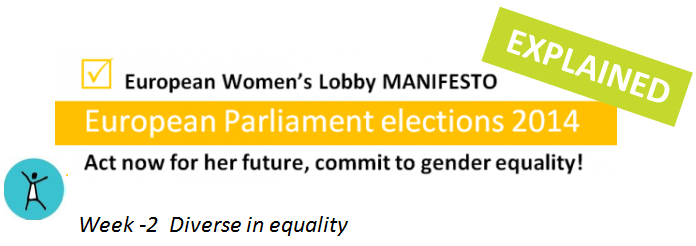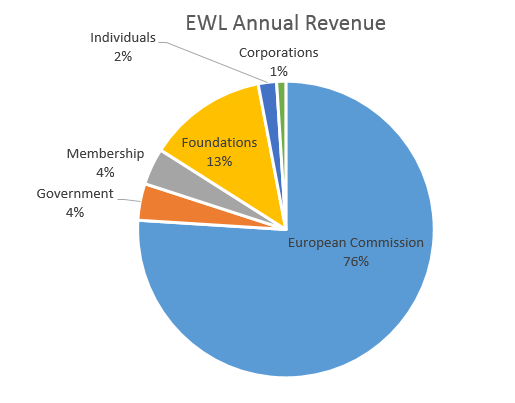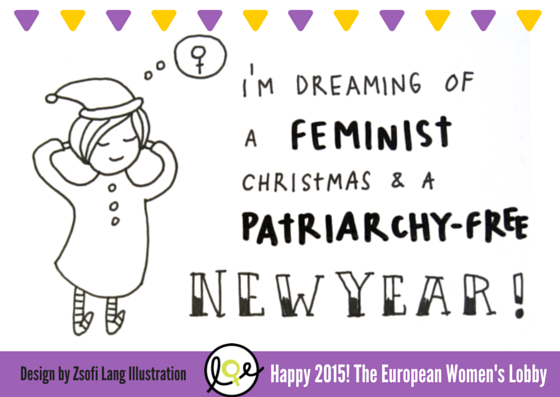[Brussels, 8 May 2014] 2 weeks before the European elections, the European Women’s Lobby explains, week after week, the demands of its Manifesto “Act now for her future, commit to gender equality!”. The seventh demand of the European Women’s Lobby (EWL), the largest umbrella organisation of women’s associations in the European Union, is diverse in equality.
The European Women’s Lobby (EWL) works for equality between women and men, and for the rights of all women irrespective of their personal characteristics, such as ethnic origin or belief, disability, sexual orientation or age. Furthermore, we consider it important to take the specific needs of women into consideration when tackling gender-based inequalities. Therefore the EWL not only values but also integrates women’s diversity throughout its policy and advocacy work.
In EWL’s work against discrimination, we pay particular attention to the multiple or intersectional discrimination experienced by some women who are denied access to their human rights and prevented from developing their full potential. For example, we are concerned about the pervasive violation of the rights of Roma women and women with disabilities who still face forced sterilisation in Europe. Similarly, we advocate for the integration of the gender dimension in measures that aim to combat discrimination. For example, we ensure that European policy on migration and asylum is developed and implemented with a gender-sensitive approach.
The principles of equality before the law and equal treatment irrespective of certain personal characteris¬tics or grounds are foundations of the European Union. EU legislation prohibits discrimination on six grounds: sex, racial or ethnic origin, religion or belief, disability, age or sexual orientation . Both the Treaty on European Union (TEU) and the Treaty on the Functioning of the European Union (TFEU) contain relevant provisions in order to combat discrimination at the EU level.
The rights to equality before the law and non-discrimination are further reinforced respectively by Article 20 and Article 21 of the Charter of Fundamental Rights of the European Union which cover additional grounds, such as social origin, genetic features, language, political or any other opinion, membership of a national minority, property, and birth. In addition, the EU has ratified the UN Convention on the Rights of People with Disabilities (CRPD) and the EWL calls on the EU to ensure its effective implementation.
However, in spite of these efforts at European level to mainstream gender and diversity, there is a lack of legal remedies on multiple discrimination, although the Employment Directive (Council Directive 2000/78/EC) and the Racial Equality Directive (Council Directive 2000/43/EC) explicitly acknowledge in their preambles the existence of multiple discrimination and note that women are often its victims. In addition, discrimination remains a wide-spread phenomenon as reported, for example, in the 2012 Eurobarometer on discrimination in the EU (n°393). According to the Fundamental Rights Agency (Annual report 2011), at national level, currently only six EU Member States address ‘multiple discrimination’ or ‘discrimination on more than one ground’ in their legislation.
In light of this persisting discrimination, the EWL calls on the European Commission to measure equality outcomes and impact on all women and girls of new and existing EU policies and legislation.
Discrimination on the basis of sex/gender is currently addressed within EU law in the areas of employment and in access to goods and services. The European Union and its Member States should ensure that existing EU legislation is actually implemented, in particular through closer monitoring and through equality bodies with adequate resources, mandates and powers. Moreover, the gap in protection should be filled: women and girls are not protected in areas of education and media, and partially when it comes to social services and social protection. The EWL therefore calls on the EU to extend the EU directive on sex discrimination to all fields of EU competence.
In order to carry out gender and equality impact assessment, data should be collected on all forms of discrimination, as well as on multiple or intersectional discrimination as experienced by women. Therefore, the EWL calls on political groups in the European Parliament to engage in debate and research on the need for Member States to measure equality outcomes, particularly in relation to women who are most at risk of discrimination.
Today, there is no protection in the access to goods and services on the grounds of religion or belief, disability, age and sexual orientation. This situation makes it difficult to deal with cases of multiple discrimination. In 2008 the European Commission proposed a Horizontal Directive which would extend protection from discrimination beyond the area of employment on the grounds of age, disability, sexual orientation and religion or belief. The EWL calls on the European Parliament to pursue its dialogue with the Council of the European Union in support of the adoption of this comprehensive Horizontal Directive.
At policy level, a comprehensive equality action plan should be developed to effectively combat discrimination and exclusion, particularly in order to take into account women’s diversity of needs and adopt appropriate measures to combat multiple and intersecting forms of discrimination experienced by women.
In light of the rise of different forms of extremisms, in particular nationalism, religious extremism and ultra-conservatism, it is crucial that the EU reinforces and promotes core values of dignity, equality and respect of human rights for all women and men.
#EuropeanWomensVoice #EP2014
Women and girls are half of Europe’s population, and are entitled to the same rights as men and boys. Achieving substantive equality between women and men, promoting women’s rights and empowering women should be a priority of the European Union and its Member States. Gender equality is an essential part of democracy, social justice, human rights and dignity. Our Manifesto “Act now for her future, commit to gender equality!” develops our vision of a Europe committed to the realization of equality between women and men.
We urge all candidates to the European elections to endorse it!



